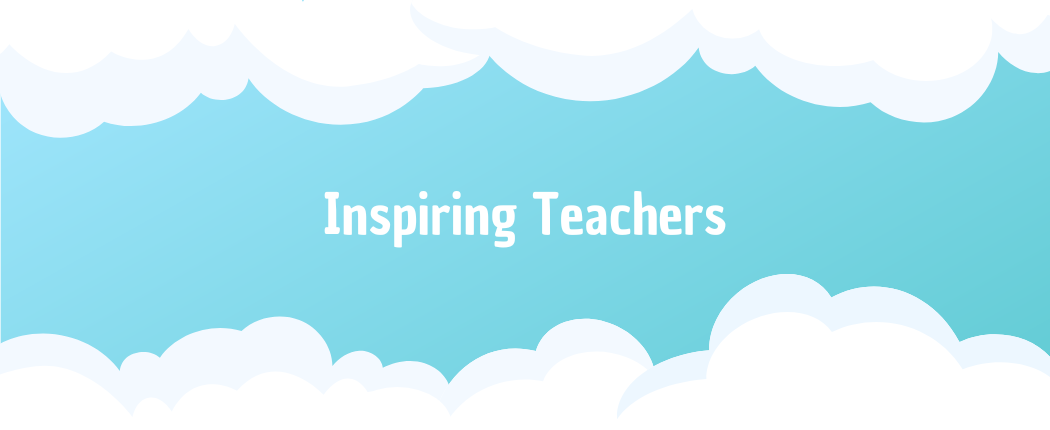
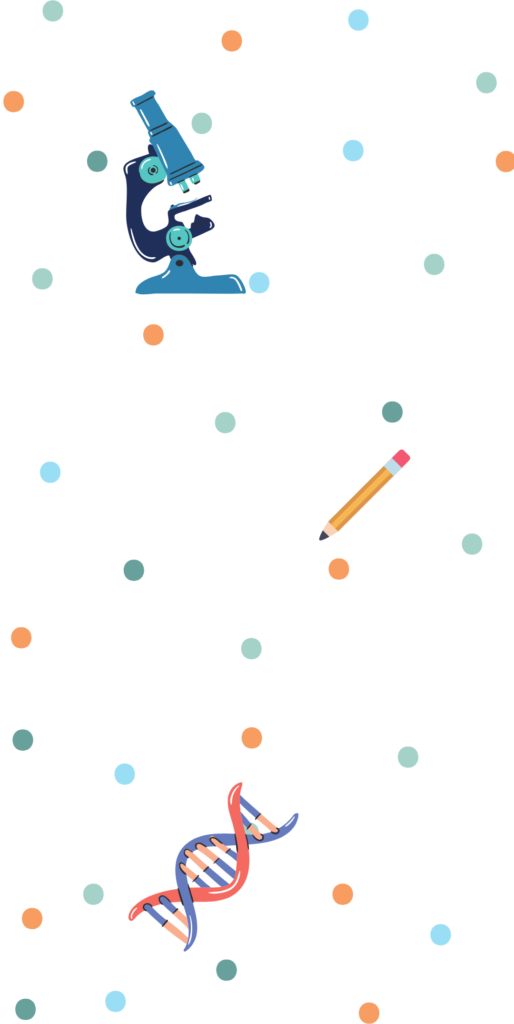
Ferdinand Geib
Geography and Biology teacher
Gabriele-von-Bülow-Gymnasium
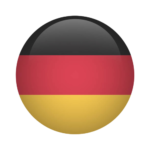
Ferdinand Geib has been a Geography and Biology teacher in the Gabriele-von-Bülow-Gymnasium of Berlin since August 2021. He holds a master’s degree in pedagogy from Germany, and has also taught at a German school in Paris.
At his current school, he is also responsible for the homepage of the school and runs a video podcast workshop called “DeMasked“.
The strengths of his school according to him
DIGITAL MODERNITY – BILINGUAL APPROACH
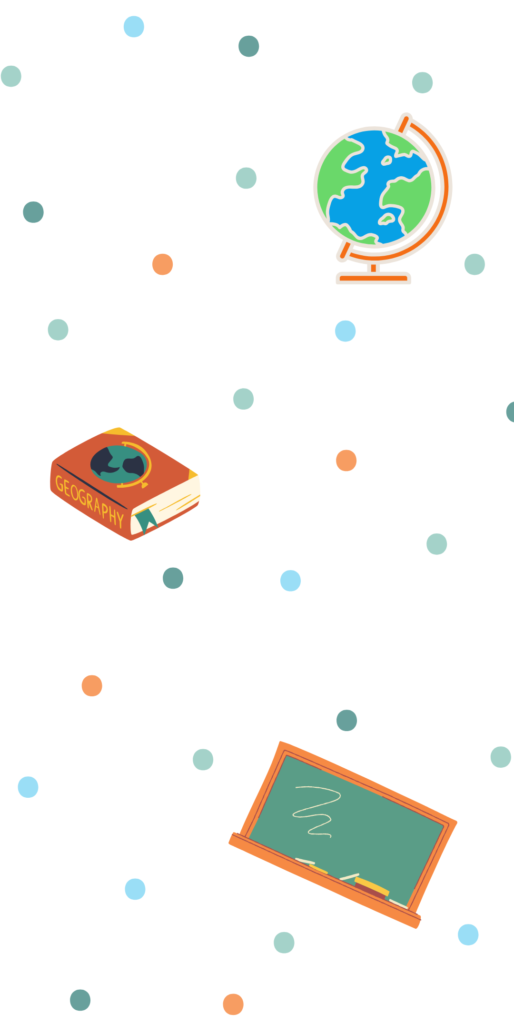
His pieces of advice for new teachers
Love students, love teaching, love your subject.
Don’t get too frustrated with the school system and don’t get desensitized in a matter of you don’t see the students anymore. Try to be a good influence and connect with the students as much as possible.
First, a few words about our interview...
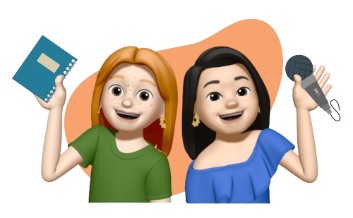
On May 15, 2022, Ferdinand Geib kindly welcomed us to his school to interview him as part of our field study. We spent an hour discussing a range of fascinating topics in the classroom where he held his video workshop. Let’s review the main topics discussed with him and the highlights of our interview.
We first talked about teacher training in Germany which consists of a master of education composed of two main topics (chosen by each future teacher) and courses on pedagogy. Then, each teacher teaches at least two subjects. Even if it is extremely important to connect knowledge in an interdisciplinary manner for Ferdinand, he explained to us that classes, where two subjects are mixed, are very rare. However, he managed to draw minor connections between his two fields of expertise in his courses. For example, when he teaches geography, he also talks about the bios, the natural potential of a given landscape, the kind of crops growing there, the climate zone… he also talks about biology.
We also discussed the current number of pupils per class and the difficulties attached to it. For Ferdinand, 32 students per class is too much. Because of this high number, the teacher-student relationship suffers and remains mainly superficial because of a like of time to connect and pay attention to each student. Moreover, he stresses that this number makes it very difficult for teachers to implement differentiation in class so that each student can progress at his or her own pace. He adds that contrary to popular belief, he and his colleagues have observed that struggling and turbulent pupils are more likely to drag the more advanced pupils down, rather than the other way round.
We then tackled the importance of parents’ involvement in school. For Ferdinand, it is really important that parents and teachers pull on the same string, so they have to have a good relationship. He explains that there is a nice community in his school, with parent representatives but also other parents participating in charity events or food distribution moments organized by his school. Parents have a key role to play in the school, both in education and in more practical matters.
We also addressed the question of grades. For Ferdinand, we need to rethink the marks and grades system. First, because a human being is not valued when reduced to a number. But also because we are rewarding the wrong thing. Students’ motivation is to get good grades, not to learn. Therefore, when they get their papers back, students look at the mark and look for missing scores, instead of reading the teachers’ comments, and so repeat the same mistakes from test to test.
We also discussed her teaching techniques, in which she tries above all to get her pupils to understand things, by encouraging group work, discussion and verbalisation rather than rote learning.
This interview was really interesting because Ferdinand frequently wonders about the topics we have covered in our interview. Even if the subjects mentioned previously are very interesting, we decided to focus our article on Ferdinand’s reflection on the role of school today.
ARTICLE
The role of school, now and tomorrow!
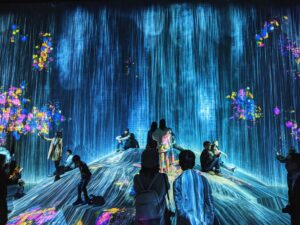
Unsplash / @notethanun
Today, the question of learning is challenged by the progress of digitalization and AI. It is indeed a highly contemporary question. 50 years ago, rote learning of information was the norm, but today, students can find information on thousands of subjects in a matter of seconds on the web. The role of school seems to be put into question by the rapid evolution of our societies. Regarding this question, Ferdinand has a very interesting position and explained to us how learning in school is important today more than ever.
For him, school is about instilling knowledge and skills that will be indispensable to students in their adult lives, and which cannot be learned on the Internet.
Firstly, he believes that school provides a common base of basic knowledge shared by all members of a given society.
I think you need some basic and common ground. As a mature human being, you should be able to express yourself and you should have a basic knowledge of politics, society, basic human functions like biology, and obviously calculation, mathematics and German.
All this basic knowledge is, of course, available online today, but it is not just a question of the accessibility of information. We can stress that the school enable the most disadvantaged pupils, who do not always have access to new technologies, to receive the same education as more privileged pupils. But beyond that, the school enables all pupils to acquire the same knowledge base. Even if all pupils had the same access to the Internet, they would not necessarily know what to learn and would acquire different kinds of knowledge, creating a diverse and unshared knowledge base. Therefore, the school has a major role to play in imparting the basic knowledge in various fields required for all individuals to fit in and thrive in our societies.
Secondly, Ferdinand highlighted that the school is the place where everyone learn how to think, how to learn and how to express themselves. These skills are fundamental and must be mastered by students.
It is really important to be able to use cultural techniques like writing. Because when you know how to write, you know how to express yourself. This is very important in everyday life. If you apply for a job, if you want to hold your ground in a discussion, if there are some strange people around who express some strange opinions which are questionable, you need to be able, I think, especially in a democracy to stand up for the values of the democracy and for your values. This is what you should learn in school on a basic level. And you cannot look this up.
So it is not just about learning knowledge at school, it is also about learning skills, and then combining the two.
Thirdly, Ferdinand pointed out an area in which the school has a major role to play: teaching new cultural techniques. This third aspect is still rarely taught in schools, but it is of major importance to him. It concerns everything related to the digital world.
It is more and more important that you know how to do research on the Internet, and how to know your way around data security. For example: Who can take pictures of me? What happens with all the information I upload on Facebook and Twitter? How do I differentiate fake news from news? And I think this will be more and more important to know your way around digital devices and also the secondary realities of the digital world with all the social media. How to handle it without getting sick and how not to get drawn into it and forget about your real life, so to speak.
Thus, the digital skills and knowledge are of primary importance for him. The school is the place to learn those because you cannot google those if you do not know how to do internet research and how to differentiate and deal with online information. However, if this should be one of the roles of the school today, it is not yet a reality. Indeed, the school is always a little behind its time, which is understandable since reforms take time to be adopted and then implemented. Nevertheless, Ferdinand copes with the reality of the school today and still manages to pass on digital knowledge to its students.
He pointed out to us interesting initiatives at different scales about the digitalization of the school and its teachings.
On the scale of the Berlin Länd, he explained that all secondary school teachers receive window surfaces from the government. He praised this initiative to give teachers easier access to new technologies. However, he deplores the fact that this provision of tools to education professionals is not automatically accompanied by training.
There was a lot of money involved in putting out these electric digital devices, but there was not really, I think, a kind of infrastructure to facilitate the use of it. So most of my colleagues don’t know how to use it. They are not really fond of the devices. And I think 5% totally use them. It’s a pity.
He stressed that teachers can benefit from workshops offered by the school, for example about digitalization. However, teachers have to do these trainings on their own and they are mostly based on volunteering. Those training are not dedicated to the use of the surface windows, they are more about general knowledge about the digital or new techniques specific to a particular field of study. Therefore, most teachers do not necessarily have the time or inclination to take part in these sessions.
On the scale of his school, Gabriele-von-Bülow-Gymnasium, Ferdinand feels lucky to have a very modern headmistress who knows how to find funding to acquire electronic devices. Thus, every classroom is equipped with a big screen that the teachers can use. The school has also acquired a large set of iPads, which are currently allocated to the most gifted pupils. But Ferdinand is also creating with colleagues a new curriculum in media competency to launch in 2023. The goal is to provide iPads to a whole group class with a leasing system. They are currently working on the implementation of the iPad in the regular curriculum and regular lessons. To do this, he draws on his own experience and that of his colleagues, who are equally passionate and qualified in this field.
There are some colleagues who have a high expertise in this field. I know I have a lot of experience working with the iPad. I did my teacher’s training in a school where every student in the upper classes (like 17, 18, 19 years old) was equipped with iPads. And all the teachers were also equipped. So I got some experience with teaching with iPads. I teach every day with my iPad. But of course, it’s different when every student has their own.
It is a very interesting project which shows that the integration of technological tools into the curriculum requires an adaptation of formats and programs. This stresses that the digitalization of education needs to be thought through. One cannot only add new tools to the traditional programs without slightly changing them.
On its own scale, Ferdinand is in charge of a digital extra-curricular workshop called De Masked. Created during the COVID-19 pandemic, this workshop aimed at encouraging students to go behind the masks, COVID masks but also social masks. With their mentor, they realise video content (video podcasts, stop motion movies) to go beyond appearances, to get to know truly the people behind the “roles”. We encourage you to check on their work! This workshop is a good example of the integration of digital tools into the school environment, and the cross-learning of technical and social skills.
With all of these examples, we see different ways of introducing digital at school. Ferdinand’s views also help us understand why technological skills are becoming key competencies to master today. However, training students to navigate the digital world is not the only role that Ferdinand attributes to the school and which is not yet fully a reality today…
Finally, Ferdinand pointed out one final function that he believes schools should fulfil: enabling students to discover themselves. We often hear teachers bemoaning their lack of freedom in the face of school curricula, yet Ferdinand points to a problem that seems even more important. For him, students should have more freedom to discover and choose the topics they like.
State schools are outdated for him, for the most part. They give students system intelligence (adaptability), but they are too standardized to enable students to find their own path. On the contrary, as mentioned before, he thinks that pupils should learn the basics in different domains. But after that, they should be able to choose what they want to learn more about.
I think there should be some baseline, some basic knowledge which everyone has to get in to orient themselves in the world, so to speak. But then there should be way more freedom to explore your personality and also your passion. What is really your interest? If I know that I want (…) to study some language, why do I have to attend all these math and chemistry lessons if I already know that I don’t want to do it?
For Ferdinand, especially in secondary schools, pupils should be freer to pick their paths. He stresses that for now, curricula are at the same time too specific for students not interested in the subject and too shallow for interested students. He explained to us that there are too many topics to cover, and there is no time to explore a subject in depth. As a consequence, he stresses that it jeopardizes the “sustainability of knowledge”, to borrow his words.
You’re always in a rush. And that’s a bit problematic, I think, for most of the students and also for the sustainability of knowledge, because they learn a lot of things, but nothing really deeply. So usually everything is forgotten, like after a few months again. So then you can ask the question, why learn it in the first place?
To counter this effect, Ferdinand believes that students should have the freedom to choose which subjects to study once they have mastered a basic set of skills. But beyond offering personalized paths, the school should also give them time to reflect and discover themselves. They should also be able to choose between different teaching formats, with less traditional methods that give more space to their voices.
They should have more choices like: “What do I want to learn today?”. Not: “Okay, teacher X is in front of me, and I got to listen for the next 75 minutes, and I cannot escape”.
To enable students to find themselves, Ferdinand also believes that the teacher-student relationship needs to change. He explained that today, there is still an asymmetrical relation where the teachers speak the “gospel truth”. Students are not actors in the lesson, they receive a teacher’s speech. Therefore, they are not really in a good position to find their own truth or their own way. Then, Ferdinand ambitions another kind of relationship.
Obviously teachers knows more than student, otherwise there is no teacher relationship. But they should be more like mentoring students. (…) [Teachers and students should be] working together to learn together. Teachers are supporting the learning process. I think this is way more healthy.
It’s the teacher-student relationship he wants to develop in the new subject he wants to introduce into a school. It is called Challenge and it is already in place in other German schools.
It’s about challenging yourself, kind of. So this would be once a year, like three weeks or one week just before the summer break, where they go out and travel and do their own challenge.
He gave us examples from other schools where some students went on a bike trip from Berlin to Paris with a 150€ budget, others decided to cross the Alps. Thus, The idea is to let students choose their challenge in groups of 3 to 5 people. Then, to support them throughout the year in preparing for their challenge as a mentor, to give them a lot of freedom. Then you need to find university students to accompany them, if they are not on summer break. This project is great to enable students to discover themselves, and their passions, to challenge them. As the saying goes, Travel shapes youth.
To put it in a nutshell, we have covered 4 main functions of the school according to Ferdinand (to which we totally adhere!):
- To provide a common base of basic knowledge
- To teach students how to think, to learn and to speak their mind
- To pass on knowledge and skills about the digital and its associated cultural techniques
- To enable students to discover themselves and their passions
The first two are pretty much fulfilled today. However, the last two are still in their early stages, but should be at the heart of tomorrow’s school!
Our favorite good practices
Ask your students to describe the perfect teacher
Ferdinand asks this question to his students at the beginning of every school year. It is a good way for him to identify his students’ expectations and to remind him what he is aiming for. This exercise costs very little, and shows students that teachers are listening to them, are interested in their opinions and needs. It is also a way for the teacher to adapt to a new public. We recommend it highly!
To give an example, there is a list of the characteristics most often mentioned by Ferdinand’s students. For them, the ideal teacher is…
- Fair,
- With authority, who is not too kind,
- Passionate and competent in his/her field,
- A good listener, attentive to students’ needs,
- Someone who knows how to pass on his/her knowledge,
- Someone they can look up to.
Create projects and extra-curriculum workshops
Even if those kind of classes require extra preparation from teachers, they are really important for students. In comparison with more traditional courses, these extra-curricular classes are less structured and teachers have more freedom to conduct them as they want. Those classes can cover a wide array of topics depending on the teachers’ passions. They are a good way to help students grow and learn in a different way. It can even reveal hidden passions in some students, and help others reconnect with the school system. Ferdinand’s video workshop and challenge course are perfect examples of how these extra classes can be organized. For him, extra-curricular activities could be included in the curriculum, showing their importance.
Key words
Germany
Relationship with students
Curriculum
Grades
Role of school
Digital tools
Article written by
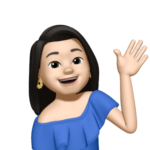
Marie Ferran
Published the 11/25/2023
Other articles could interest you !

Ewelina Smialeck
![]()
A polish english teacher passionated about education who includes new digital tools in her courses.
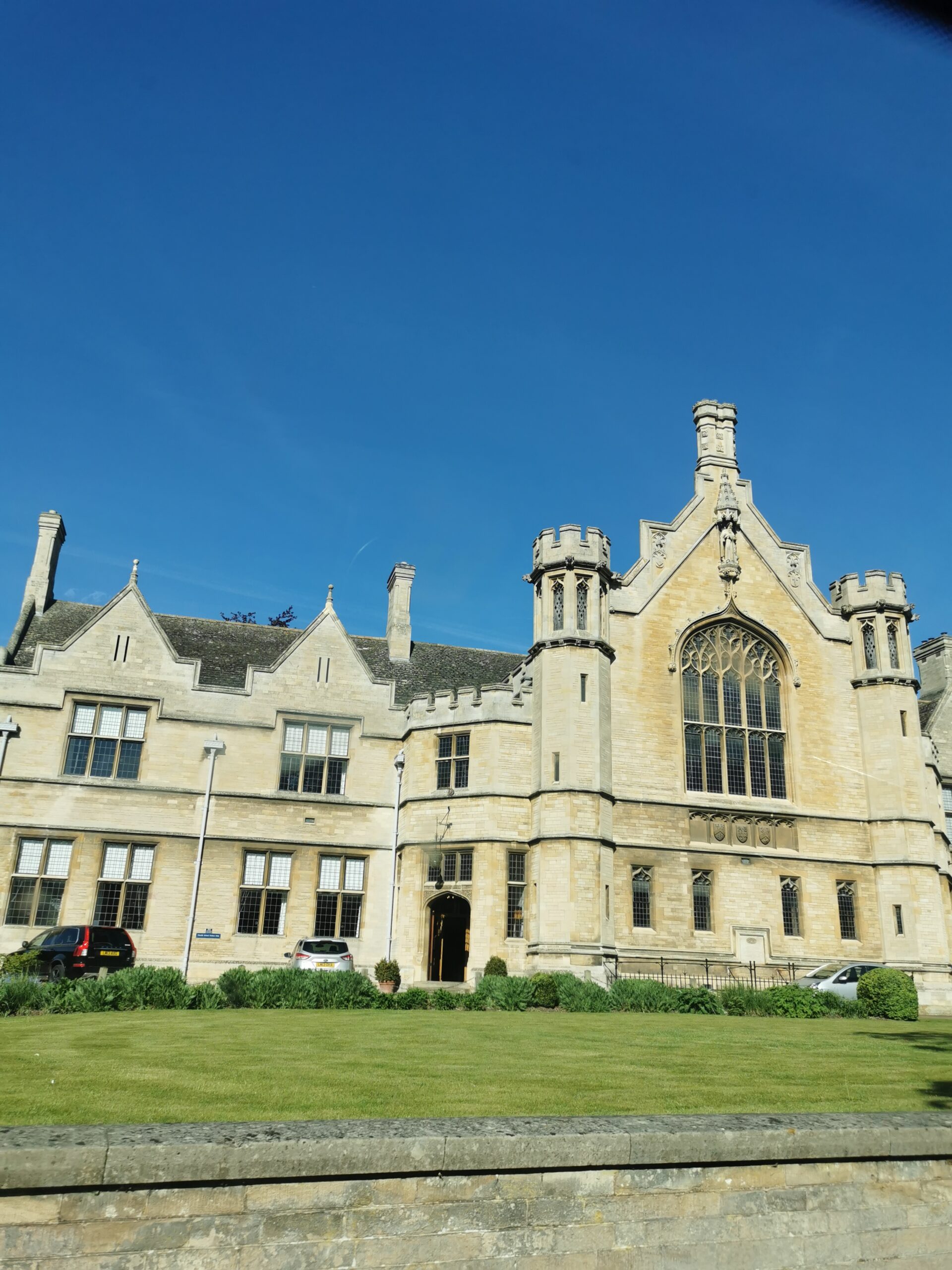
Oundle School
![]()
An independent English private school renowned for its academic quality and its promotion of extra-curricular activities.
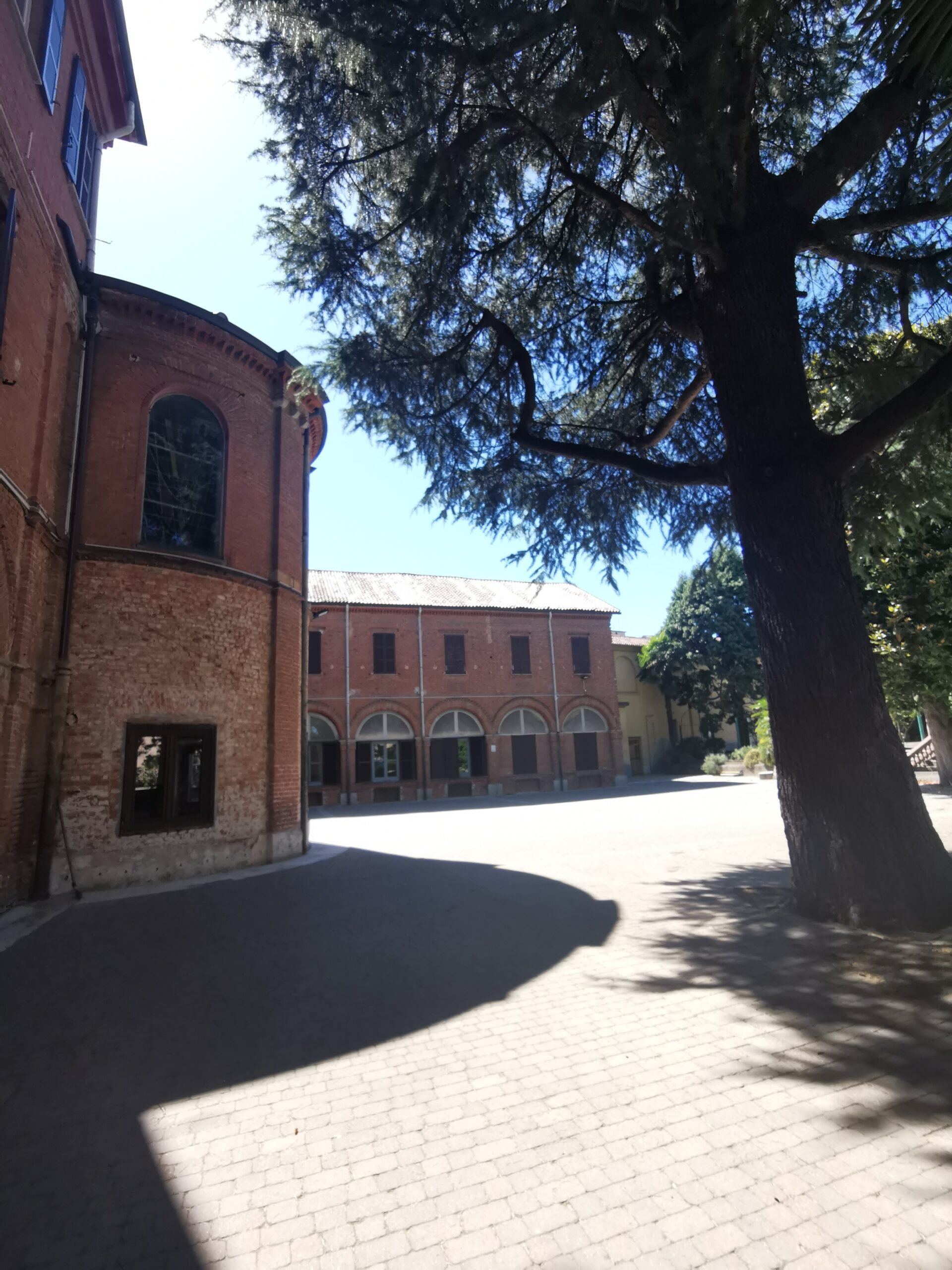
Istituto Paritario San Giuseppe
![]()
An Italian dominican school that blends elements of tradition, with the evolving needs of a continuously transforming society.
